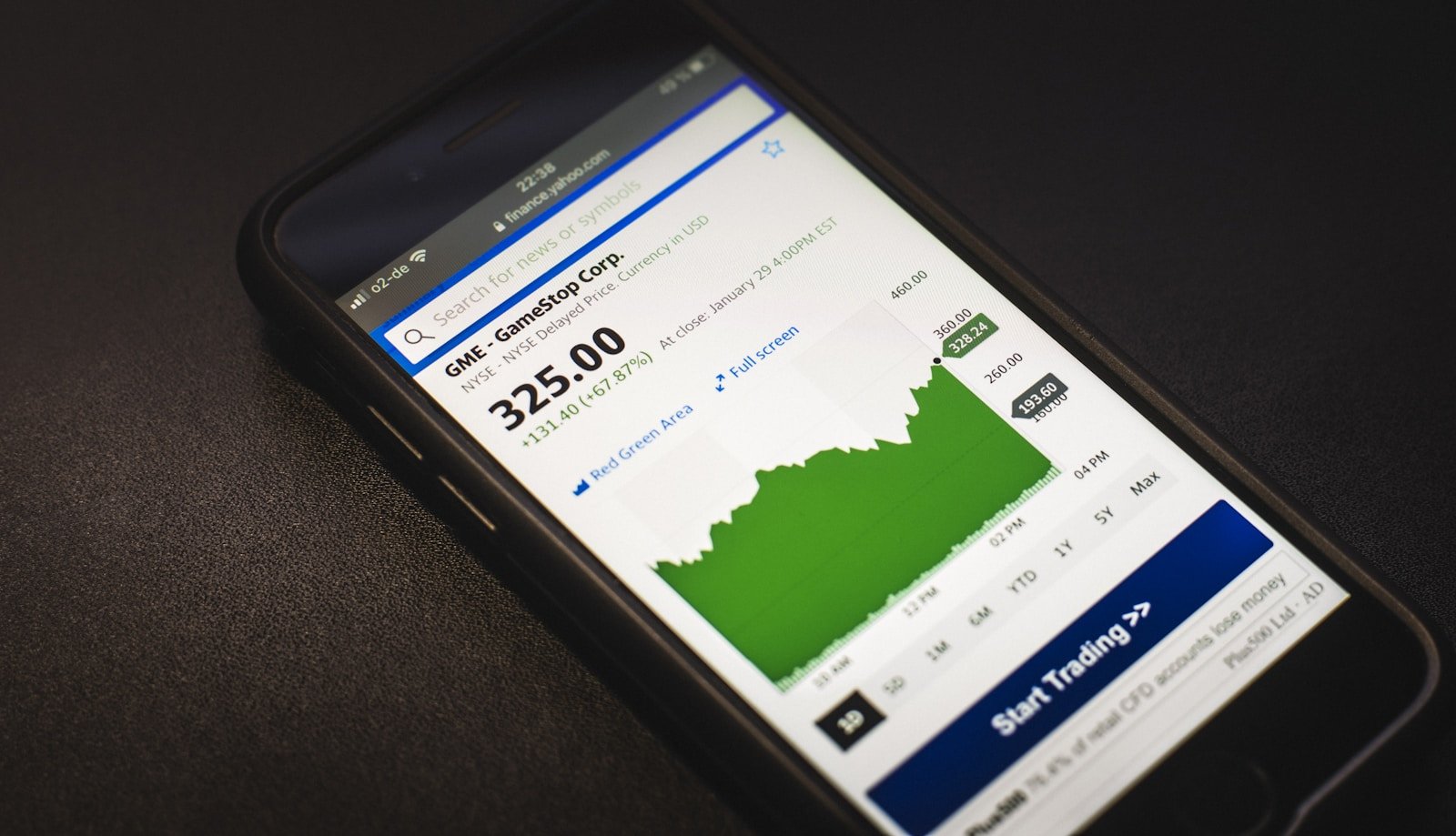Understanding Investing Basics
When you’re dipping your toes into investing and aiming to grow your wealth, it’s wise to grasp a few basic ideas. Let’s chat about why mixing things up with your investments, looking at high-yield savings accounts, CDs, and those handy workplace retirement plans, can be smart moves.
Importance of Diversification
Alright, so when you’re just getting started investing, you’ve got this nifty trick called diversification up your sleeve. It’s like having a bunch of different things in your investment basket—stocks, bonds, maybe some property. Why? Because if one thing tanks, you’re not left holding an empty bag. You’ve still got other things that might do well. Diversification means you’re spreading out your risk so you don’t lose your shirt just because one investment didn’t pan out the way you hoped.
High-Yield Savings Accounts
Your first foray into investing doesn’t have to be risky. High-yield savings accounts are where you can stash your cash and watch it grow a bit quicker than in a regular savings account. Imagine getting interest rates that actually seem like they’re doing something for you! Sometimes going with an online bank can score you the best rates, making these accounts a super easy way to start your money-growing adventure. Here’s a peek at how they stack up:
| Account Type | Average Interest Rate |
|---|---|
| Standard Savings Account | 0.05% |
| High-Yield Savings Account | 1.00% – 2.50% |
Certificates of Deposit (CDs)
CDs are another option if you don’t mind parking your money for a bit. They’re a pretty safe bet since banks cover your money up to a quarter million bucks. The deal is, the longer you let them hold your cash, the more interest you’re likely to earn. Check out how the rates can shake out for different time frames:
| Term Length | Average Interest Rate |
|---|---|
| 6 months | 0.10% |
| 1 year | 0.50% |
| 5 years | 1.00% |
Workplace Retirement Plans
Think free money sounds too good to be true? Well, those workplace retirement plans can come close. With stuff like a 401(k), your boss might match some of what you put in. That’s money you don’t have to work extra for. Plus, having a plan like this in place means the taxman waits for a bit before knocking on your door—it’s a tax deferral perk! Then you’ve got the Roth varieties where you won’t even have to pay taxes on it once you start living your retirement life.
For more nifty tidbits on getting started with retirement planning, take a look at our handy guide on beginner investment tips.
So, wrap your head around these basics and you’ll be setting the stage for some solid investment moves. Whether it’s mixing up your investment portfolio, leaning on high-yield savings accounts, looking at CDs, or cashing in on workplace retirement matches, you’ve got some good options to start growing your wealth—not bad for just starting off, right?
Exploring Investment Options
So, you’re thinking about dipping your toes into the investing pool, and maybe you’ve only got some spare change. That’s cool! Knowing your options is the first step.
Mutual Funds
Imagine mutual funds like a buffet of investments you get to sample without the high price. They pull together a smorgasbord of stocks or bonds, which you might find pretty pricey on their lonesome (Bankrate). With these funds, everyone’s cash goes into one big money pot, spreading out the risk like spreading peanut butter on toast.
Why You Might Like Mutual Funds:
- Grab Bag of Goodies: Mix it up with a bit of everything.
- Financial Freedom: Handled by pros who do this stuff in their sleep.
- Wallet-Friendly: You don’t need to be Mr. Moneybags to start.
Exchange-Traded Funds (ETFs)
ETFs are the cool kids at the investment party. They’re like mutual funds, holding a bunch of stuff—but unlike mutual funds, you can trade them anytime the market’s open. Need to cash out for a pizza? No problem, that’s how flexible it is.
Why ETFs Can Be Your Best Bud:
- Wallet-Smart: Lighter fees mean more in your pocket.
- Adaptable: Trade ’em like your fav stock.
- Mix and Mingle: Covers a range of investments, so you’re not putting all your eggs in one basket.
Index Funds
Index funds are like auto-pilot for your investments, tracking indexes like the S&P 500. They’re sort of the couch potatoes of investing—sitting back, taking it easy, and letting the market do its thing (Bankrate). If you’re in for the long haul, they’ve got your back with their low fees and pay-off over time.
Why Index Funds Make Friends Easily:
- Cheap Is Good: Low fees mean more cash back in your jeans.
- Broad Horizons: Taps into a wide array of companies.
- Hands-off, Don’t Sweat It: Set it and forget it, Angela Lansbury style.
Check out the easy-peasy table below showing what you can expect to fork out with these different funds.
| Investment Option | Average Cost (% of investment) |
|---|---|
| Mutual Funds | 0.50 – 1.50 |
| ETFs | 0.20 – 0.50 |
| Index Funds | 0.05 – 0.20 |
Source: Bankrate.
Nailing down the best investment for your portfolio is like building a sandwich just the way you like it—layer by layer. Hungry for more knowledge? Check out our guides on investing for beginners and beginner investment strategies.
Strategies for Effective Diversification
Learning how to start investing with little money can feel like piecing together a jigsaw puzzle. But, here’s a juicy tidbit: the magic trick is effective diversification. Juggling your investments across various assets smooths out the rollercoaster ride of market ups and downs. If one piece of your portfolio gets tripped up, the rest can carry the weight and keep things steady.
The Concept of Diversification
Diversification is like the golden rule of investing, ’cause who wants all their eggs in one basket? When you spread out your investments, you level out the crazy highs and painful lows, making it easier to stick to your plan and maybe even see better returns along the journey (Bankrate). It’s a nod to the future being a bit of a mystery, so it spreads the risk around.
Utilizing Index Funds
Index funds are kinda like shopping at a wholesale club for investments. For a bargain price, you get a bundle pack that covers a wide range of companies and industries. They give you a bite of different sectors like the S&P 500, with minimal management fuss.
| Index Fund Type | Description |
|---|---|
| S&P 500 Index Fund | Hooks into the 500 biggest U.S. companies |
| Total Stock Market Index Fund | Grabs the whole U.S. stock scene |
| International Index Fund | Taps into businesses outside the U.S. |
Even with a tiny bankroll, index funds are a stellar path to diversification (Bankrate). For extra juice, peep our piece on beginner investment strategies.
Importance of Holding Cash
Cash is the unsung hero in your portfolio squad. It’s like your trusted guard dog during market storms, ready to pounce on golden chances when the skies clear. Also, it’s a human-sized cushion for the times when the market takes a nosedive (Bankrate).
Target-Date Funds
Target-date funds are for those who prefer to sit back and enjoy the ride. These funds handle the heavy lifting by switching gears over time. They start off with daring, high-reward gems and cruise towards safer shores as you inch closer to throwing a party for your investment goal, like retirement.
| Retirement Year | Stock Allocation | Bond Allocation | Cash Allocation |
|---|---|---|---|
| 2050 | 90% | 10% | 0% |
| 2030 | 60% | 30% | 10% |
| 2020 | 40% | 40% | 20% |
For the laid-back, long-term crowd, it’s a dreamy pick. Check out our hot picks for best investments for beginners.
Geographic Diversification
Geographic diversification is scattering your investment seeds across different global gardens. There’s a smorgasbord of prospects beyond the American front, like growing markets in Asia or tasty picks from Europe. It’s a handy trick to dodge regional economic stumbling blocks (Bankrate).
Using these strategies, you can give your investment portfolio a good stretch, even on a shoestring budget. For more juicy wisdom, mosey on over to our beginner investment tips.
Investing with Limited Funds
Spreading the Wealth
When your budget’s tight, juggling your investments becomes a smart game of risk vs. reward. Diversification is your best buddy here. Think of it like spreading jam on a slice of bread – covering more surface reduces the chance of completely missing out. By mixing up where you park your money, you’re not putting all your eggs in one basket. This mix and match strategy keeps you in the game longer and might even nudge your returns higher. Peek at the best investments for beginners and get your portfolio diversified like a pro.
Sources:
Index or Bond Funds
Index funds are your wallet’s friend. These are low-maintenance, low-cost ways to get a taste of the stock market action. They let you hitch a ride on the coattails of a specific index, like the S&P 500, and the management fees won’t break the bank. Want something a bit safer? Bond funds might be your go-to. They come with less drama and promise steady returns, perfect if you’d rather not sweat it.
| Fund Type | Description |
|---|---|
| Index Funds | Wallet-friendly, lets you track an index like the S&P 500. |
| Bond Funds | Invest in bonds for a smoother ride and more predictable returns. |
Sources:
Building Your Portfolio
Keep topping up your investments even when the market is throwing a tantrum, and you can flatten out the rollercoaster ride. Techniques like dollar-cost averaging have your back here: you invest the same amount regularly, oblivious to price swings, so you get more bang for your buck when things are down and stack up when they’re up. That’s the recipe for a sturdy portfolio!
Sources:
Knowing When To Get Out
Playing the investment game is not just about jumping in; it’s about knowing when to hit the brakes, too. Keep a finger on the pulse of your investments and be ready to pivot when the time’s right. Regular check-ins save you from unnecessary losses and tee you up for the next big opportunity. Our beginner investment tips can help you sync your exits with the market vibe.
Sources:
Monitoring Commissions
Don’t let sneaky fees eat into your profits. While plenty of online brokers boast commission-free trades, be sure to open your eyes wide for fees attached to mutual funds or less liquid assets. Keeping track of these costs means more of your gains stay in your pocket.
| Broker | Commission-Free Trades | Fees for Mutual Funds/Other Assets |
|---|---|---|
| Broker A | Yes | $0 – $9.95 per trade |
| Broker B | Yes | Fees vary depending on the fund/asset |
Sources:
Starting Your Investment Journey
Establishing Investment Goals
You gotta figure out why you’re putting your money on the line. Racking up success in the investing game often starts with knowing your ‘why’. Maybe you’re eyeing retirement, planning for a flashy future buy, or just piling up that dough. Setting clear goals gives you a roadmap for making smart moves. Retirement is a go-to for many, syncing your money plans with life-long aims. For more deets on how newbies can get started, check our guide on investing for beginners.
Choosing Account Types
Once you’ve figured out your goals, it’s time to pick your money stash spot. Here’s the skinny on the main accounts:
- Brokerage Account: Packs a punch with lots of investment choices.
- 401(k): Score some extra cash with employer-matching in this retirement plan.
- Individual Retirement Account (IRA): Fly solo and set aside for the long haul (Fidelity).
Choosing wisely can shake up your strategy in a big way. Dive into our section on best investments for beginners to find more options.
| Account Type | Benefits |
|---|---|
| Brokerage Account | Loads of investment choices |
| 401(k) | Employer matching, tax perks |
| IRA | You’re the boss, pick your own stuff |
Making Initial Contributions
Kickstarting with a chunk of change can really crank up your investment machine. Even if you’re starting small, tossing in more cash regularly—automatically, even—makes a difference. Thanks to dollar-cost averaging, you can dodge some of those nasty market swings (Fidelity).
Saving for Retirement
Stashing cash for your golden years should be a top goal when you’re new to this. Using 401(k)s and IRAs? They offer sweet tax breaks and growth chances over the long run. Make sure to snag all the employer matching if it’s on the table. That’s like free money for future-you. Get more ideas with our beginner investment tips.
Making Investment Purchases
Taking the plunge into your first buys? Go for safer bets like index or bond funds that offer a nice mix of investments even if your wallet’s a bit light. These days, online brokerages let you join the game with no minimum deposit, so you can start with just your spare change (Investopedia).
| Investment Option | Initial Moolah Needed |
|---|---|
| Mutual Funds | $1,000 to $2,500 |
| ETFs | Depends on share price |
| Individual Stocks | Price varies by share |
Check out broker options and fees before you leap in so you don’t get burned. Tech and apps make dropping a few bucks into investing simple and quick. Peek at our review of the best investment apps for beginners to scope some options.
Nose around these links for more inside scoops:
- beginner investment strategies
- beginner investment tips
Stock Investment for Beginners
Starting with Small Amounts
Jumping into stocks doesn’t have to feel like climbing Mount Everest in flip-flops. You can dip your toes without emptying your piggy bank. A bunch of online brokerages let you hop on board with little to no minimum cash required. Even tossing in $25 each week, you can start patching together your investment portfolio—you know, like building a LEGO castle, block by block.
Check out how those small dollars can add up:
| Weekly Investment | Annual Investment | 5-year Investment |
|---|---|---|
| $25 | $1,300 | $6,500 |
| $50 | $2,600 | $13,000 |
| $100 | $5,200 | $26,000 |
Clear Investment Goals
Before you start throwing lightning bolts into the stock market, nail down what you’re after. Saving for that golden retirement, couching away an emergency fund, or just padding your pockets a little bit? Having your goals front and center kicks your decision-making into gear. Want some strategies to chew on? Give our beginner investment strategies a read.
Choosing the Right Investments
Picking investments can be about as easy as picking wallpaper with your in-laws. If you’re green to the game, try stock funds like mutual funds and ETFs. They’re like a pre-picked fruit salad—mixes of different stocks that spread your risk. So you get a taste of many stocks without buying each one yourself. Helpful, huh? Our best investments for beginners guide lays out the buffet for you.
Researching Brokers and Fees
Choosing a broker is like picking a sidekick for your adventure—you want one you can trust. Look into different brokers, checking what they charge. Lots of online ones say goodbye to commission fees, so you can start strong without coughing up all your pennies. Knowing what’s gonna lighten your wallet can help keep it heavier longer. Have a peek at our beginner investment tips for some smarts on picking your broker pal.
| Broker | Commission Fees | Account Minimums |
|---|---|---|
| Broker A | $0 per trade | $0 |
| Broker B | $4.95 per trade | $500 |
| Broker C | $9.95 per trade | $1,000 |
Kick off with small bits, set those goals loud and clear, spread your investments like butter, and give brokerage fees the ol’ stink eye. You’ll be cruising the stock market before you know it. For more handy advice, our investing for beginners guide is your next stop.
Best Investment Apps for Beginners
Want to stash away those extra pennies and watch them grow? Finding the right investment app can be your ticket to building wealth on a shoestring budget. Here are some apps that are a game-changer for newbie investors like you.
Acorns
Acorns is kind of like that old piggy bank, but smarter. It takes the change from your purchases and turns it into investments. Don’t have a big wad of cash to start? No worries, Acorns has got your back with its micro-investing magic.
| Feature | Description |
|---|---|
| Type | Micro-investing |
| Fee | Flat fee starting at $1 per month |
| Best For | Effortless investing of spare change |
Check out more investment tricks for rookies on our site.
E*Trade
E*Trade is like a buffet for investors with a smorgasbord of options—you pick your favorite dish, whether it’s stocks, mutual funds, or even futures. With zero commission fees, you can feast to your heart’s content without burning a hole in your pocket.
| Feature | Description |
|---|---|
| Type | Full-service investing platform |
| Fee | $0 for online stock, ETF, and options trades |
| Best For | Diverse investment options |
Find more investment hacks for newbies to spice up your portfolio.
Stash
Stash isn’t just about stuffing dollar bills under your mattress; it’s your all-in-one financial guru. With Stash, you get brokerage services, banking, retirement accounts, and a treasure trove of knowledge—all for just a buck a month.
| Feature | Description |
|---|---|
| Type | Robo-advisor and banking |
| Fee | Flat fee starting at $1 per month |
| Best For | All-around financial help and learning |
Discover our top beginner investment tips for a leg up on your financial journey.
TD Ameritrade
TD Ameritrade rolls out the red carpet for its users with round-the-clock support. Think of it as having a financial buddy who’s always there to help you out, whether you’re calling them up or sending a quick text.
| Feature | Description |
|---|---|
| Type | Full-service investing platform |
| Fee | $0 for online stock, ETF, and options trades |
| Best For | Excellent customer support |
Peek into more extensive platforms in our beginner investing guide.
Personal Capital
If you’re the kind of person who likes to keep tabs on every dime, Personal Capital’s your pal. Part robo, part human advice, it helps you track spending, manage your wealth, and plan for retirement, all while making sure your money is in line.
| Feature | Description |
|---|---|
| Type | Hybrid robo/human advisor |
| Fee | Management fees vary |
| Best For | Thorough financial overview |
For more budget-friendly investment tips, head to our beginner investment section.
These tools make it easy to leap into the world of investments, offering plenty of choices to match your personal style. So go ahead—dive in and start building that dough with gusto.
Smart Ways to Begin Investing
Okay, so you’re new to the money game, thinking, “How do I even start investing?” Don’t stress. You don’t need a Wall Street-sized stack of cash to get going. Start small, dip your toes in, and watch your dough grow. Here’s how to kick things off without pulling your hair out.
Monthly Savings Routine
Save like it’s going out of style. Yep, it’s that simple. Set aside a slice of your paycheck every month. As you get comfy with managing your cash, try upping that amount. Trust me, those dollars add up. Automate the process by transferring a set amount to a savings or investment account. That way, you won’t even miss it. And hey, if your boss is handing out free money through a 401(k) match, snatch it up. It’s like finding cash in your old jeans (Investopedia).
Managing High-Interest Debt
Let’s talk debt—especially that sneaky high-interest kind that’s like a ball and chain. Stuff like credit card balances and steep student loans should be your target. Why? Well, paying those off does your finances a solid, saving you cash in the long run. Think about it: the stock market might give you a 7-8% return, but if you’re being dinged more than 10% in interest, ouch! Knock out those big interest numbers first (Investopedia).
Building an Emergency Fund
You know life’s little surprises—flat tires, surprise dental work? They won’t catch you off-guard if you’ve got an emergency fund. Try socking away enough to cover 3-6 months’ living costs before sinking cash into other investments. Think of it as your financial shield against life’s curveballs, keeping peace of mind in your back pocket (Investopedia).
Maximizing 401(k) Matching
That workplace 401(k) match is pure gold. You’re leaving money on the table if you don’t toss in enough to grab it. Let your employer beef up your retirement stash—it’s like a sneaky boost in your savings account (Investopedia). Want more retirement tips? Check our scoop on best investments for beginners.
Real Estate Investment Options
Want to brunch with the real estate crowd but think you’re short on cash? Think again. Dip into crowdfunding platforms or check out Real Estate Investment Trusts (REITs). They let you start with small amounts and still get your foot in the door. This way, you add some property pizzazz to your portfolio without breaking the bank (Investopedia). Learn the ropes at beginner investment tips.
Wrapping your head around these hacks gives you a sturdy starting block for building wealth. Stick with it, stay smart, and watch that nest egg blossom. For a heap more tips about getting your finance groove on, peruse our stuff on investing for beginners and beginner investment strategies.






